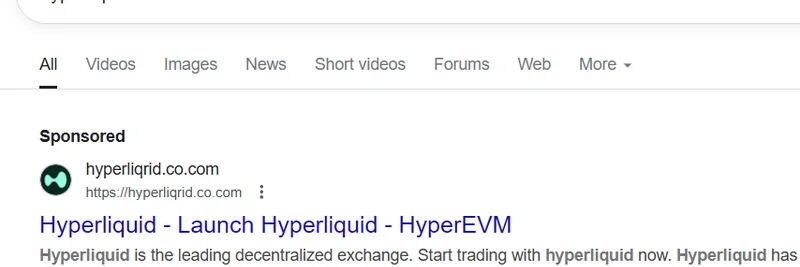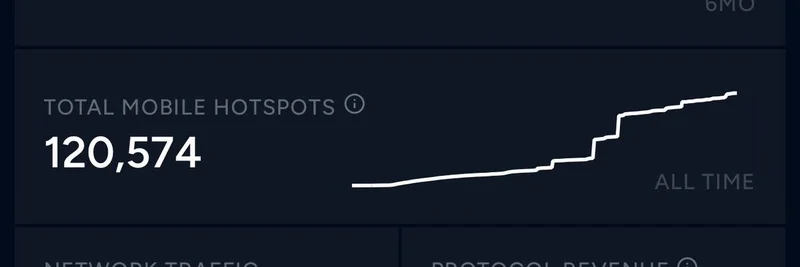In the wild world of crypto, where meme tokens can moon overnight and fortunes are made (or lost) in a flash, there's a lurking danger that's as old as the internet itself: phishing scams. But in crypto, these scams have evolved into something particularly nasty, often disguised as legitimate Google ads. A recent tweet from @0xngmi, the builder behind DeFi Llama, highlights just how persistent this issue is.
The tweet quotes a humorous yet cautionary meme from @0xIQzz: "ohh husbant... you conncet wallet to hyperriqrid and now all coin is gone 😔". It's a playful jab at the all-too-common scenario where users click on a fake ad, connect their wallet to a phony site, and poof— their funds vanish. Hyperliquid, a popular decentralized exchange (often abbreviated as DEX, which is a platform for trading crypto without intermediaries), gets misspelled as "hyperriqrid" in the meme, poking fun at the deceptive URLs scammers use.
@0xngmi points out that the fake Google ads problem is "still huge in crypto." He's not exaggerating. Scammers create ads that mimic real projects, leading unsuspecting users— from newbie meme token hunters to seasoned traders— straight to drainers. These are malicious sites that trick you into approving transactions that empty your wallet.
What's eye-opening is the scale of the fight against it. @0xngmi shares that he's poured time into building tools like LlamaSearch to counter this. Even more telling, DeFi Llama (a dashboard for tracking decentralized finance metrics, or DeFi, which involves financial services on blockchain without banks) spends "mid 5 figs per year" just on mitigating these threats for their LlamaSwap feature alone. That's tens of thousands of dollars annually to keep users safe on one part of their platform!
He mentions he'll do a write-up for other teams, which could be a game-changer. In the meme token space, where hype spreads fast on platforms like X (formerly Twitter), these scams hit hard. Pump-and-dump schemes or rug pulls (when devs abandon a project and run with the funds) are bad enough, but phishing adds an extra layer of risk. Imagine hunting for the next big meme coin, clicking a Google ad for a hot DEX, and losing everything before you even trade.
Why Fake Ads Thrive in Crypto
Google ads are prime real estate for scammers because they're targeted. Search for "Hyperliquid DEX" or "best meme token launcher," and boom— fake sites can appear at the top. Crypto's decentralized nature means no central authority to police this, so it's up to projects and users to stay vigilant.
Simple tips to avoid falling victim:
- Always double-check URLs. Legit sites like hyperliquid.xyz won't have weird spellings.
- Use bookmarking instead of searching every time.
- Install extensions like the DeFi Llama one, which verifies sites.
- Enable ad blockers to filter out suspicious ads.
The Broader Impact on Meme Tokens
Meme tokens, built on community hype and viral moments, are especially vulnerable. A single phishing incident can tank trust in a project. Remember, in blockchain, transactions are irreversible— once your coins are gone, they're gone. Tools from teams like DeFi Llama are crucial for building a safer ecosystem, helping practitioners spot real opportunities amid the noise.
As @0xngmi's tweet shows, the battle against fake ads is ongoing, but awareness is the first step. Stay safe out there, and maybe we'll see that write-up soon to arm more teams against these digital pickpockets.
For the original tweet, check it out here.


